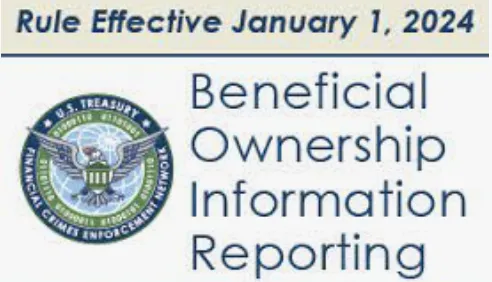Thinking about launching a business in Alabama? You’ll find it’s a relatively straightforward place to get started. With modest filing fees and clear requirements, Alabama makes it simple to set up your business entity and get rolling. But once you’re up and running, the tax side of things gets a bit more complicated.
Alabama levies both a corporate income tax and a Business Privilege Tax, which can add to your ongoing costs. And depending on the size of your business — and where your customers, employees, or contractors are based — you might have to register for and file taxes in Alabama even if you don’t actually live there.
Overall, Alabama strikes a middle ground when it comes to business friendliness. The state keeps barriers to entry low for new businesses, but its tax structure — especially the combined impact of corporate income tax and the Business Privilege Tax — is somewhat heavier than in other Southeastern states, which some entrepreneurs see as less competitive.
Our comprehensive guide on Alabama State Taxes delves into the specifics of operating a business and paying taxes in the state of Alabama.
Key Takeaways
- Alabama charges a 6.5% corporate income tax on Alabama-sourced income.
- The state imposes a Business Privilege Tax, calculated based on net worth, with rates from $0.25 to $1.75 per $1,000.
- Merely having a mailing address in Alabama generally does not trigger corporate income tax, but active business activity does.
- Having employees or contractors in Alabama can create tax nexus, requiring you to register and file returns.
If I Want to Open a Business in Alabama, What Will I Have to Do?
If you’re ready to open a business in Alabama, you’ll need to follow these steps:
- Create a business plan to outline your idea, conduct market research, develop financial projections, and build a marketing strategy.
- Choose a business structure (such as sole proprietorship, LLC, or corporation) that fits your needs.
- Reserve a unique business name through the Alabama Secretary of State for $25 ($27.75 if you reserve it online).
- Register your business with the Alabama Secretary of State (except sole proprietorships), with a typical filing fee of $200.
- Obtain an Employer Identification Number (EIN) from the IRS if you have employees or operate as a corporation or partnership.
- Apply for necessary licenses and permits:
- Get a Business Privilege License from your county probate judge or license commissioner.
- Register for a sales tax license with the Alabama Department of Revenue.
- Apply for any professional or occupational licenses required by relevant state agencies.
- Check local city or county governments for additional licensing requirements.
- Register for state taxes with the Alabama Department of Revenue, including sales tax and withholding tax if you have employees.
- Meet any federal licensing requirements if you operate in a federally regulated industry (for example, firearms, alcohol, or agriculture).
- Set up accounting and bookkeeping systems to properly track your business finances and tax obligations.
Does Alabama Have a Corporate Income Tax?
Yes, Alabama imposes a corporate income tax of 6.5% on taxable income. This rate has been in effect since 2001 and applies to both corporations organized under Alabama law and those organized elsewhere but doing business in the state.
A few things to keep in mind about Alabama’s corporate income tax:
- Corporations must file an Alabama corporate income tax return if they are conducting business in Alabama or deriving income from Alabama sources.
- For tax years beginning on or after January 1, 2021, Alabama income is determined using a single sales factor apportionment method.
- Corporations with assets of $5 million or more at the end of the taxable year are required to e-file their Alabama corporate returns.
- Alabama also charges a separate Business Privilege Tax on top of the corporate income tax.
It’s worth noting that Alabama’s 6.5% corporate income tax is among the highest in the Southeast, which some believe could discourage certain new businesses from choosing Alabama as a base.
Does Alabama Have a Franchise Tax?
Alabama does not use the term “franchise tax” but instead calls its annual business tax the Business Privilege Tax. This applies to corporations, LLCs, limited partnerships, and other business entities with limited liability or those disregarded for federal income tax purposes.
Here are some key details:
- The tax is based on your net worth in Alabama, multiplied by an applicable rate.
- Rates range from $0.25 to $1.75 per $1,000 of net worth, depending on federal taxable income.
- For the 2023 tax year, the minimum Business Privilege Tax was reduced from $100 to $50.
- Starting in 2024, businesses that would owe $100 or less are exempt from filing and paying the tax.
- The maximum tax is generally $15,000 for most businesses, while banks and insurance companies face a maximum of $3 million.
- New businesses must file an initial Business Privilege Tax return within 2.5 months after forming their entity, and annual returns are usually due on the same date as your federal return (generally April 15).
This Business Privilege Tax is separate from the corporate income tax and is an important annual cost to keep in mind.
Does Having a Mailing Address in Alabama Trigger Corporate Tax or Registration?
Simply having a mailing address in Alabama does not automatically trigger corporate income tax or registration requirements.
Alabama generally determines corporate income tax requirements based on whether you are actively doing business in the state. If you only have a mailing address but no other physical or economic activity, you typically do not need to register or file corporate income tax.
However, if your corporation conducts business in Alabama or earns income sourced from Alabama, you must file a corporate income tax return. Foreign corporations (organized outside Alabama) doing business in Alabama must also register with the Alabama Secretary of State and designate a registered agent with a physical Alabama address (a P.O. Box is not acceptable).
“Doing business” in Alabama is not defined by a single statute, but is clarified through administrative rules and tax regulations. Generally, a business is considered to be “doing business” in Alabama if it meets one or more of the following criteria:
- Owns property located in Alabama: Most instances of property ownership—especially if the property is inventory, held for profit, leased real estate, or leased personal property—will be considered doing business and subject to the Alabama business privilege tax.
- Conducts a trade or business in Alabama: Actively engaging in commercial, trade, or business activities in the state.
- Engages in commerce of any kind: This includes buying, selling, or otherwise participating in economic activity within Alabama.
- Renders professional services: Providing professional or other services within the state.
If you’re unsure whether your company’s presence crosses into “doing business” status, it’s a good idea to consult a tax professional or legal advisor familiar with Alabama’s rules.
If I Have My Business in Alabama But Live in a Different State, Will I Pay Tax?
Yes. If your business is located in Alabama, you will still have tax responsibilities there, even if you personally live elsewhere.
If I Live Abroad but Have a Company in Alabama, Do I Pay Tax?
Yes. If you have an Alabama-registered business, you still have tax obligations in Alabama even if you live overseas and perform all your activities outside the U.S.
Does Having an Employee in Alabama Trigger Corporate Income Tax?
Yes. Having an employee in Alabama can create what’s known as nexus, meaning your business has a sufficient connection to the state to be taxed there. Alabama uses a factor presence nexus standard, and as of January 1, 2023, your company has “substantial nexus” if it exceeds any of these thresholds:
- $64,000 of property in Alabama
- $64,000 of payroll in Alabama
- $635,000 of sales in Alabama
- 25% of total property, total payroll, or total sales in Alabama
If you have an employee in Alabama, you’ll likely meet the $64,000 payroll threshold, which triggers corporate income tax responsibilities. Even if you don’t meet these numeric thresholds, you may still have nexus through traditional “physical presence” rules simply by having staff in the state.
Does Having an Independent Contractor in Alabama Trigger Corporate Income Tax?
Yes, having an independent contractor in Alabama can also create corporate income tax nexus.
Additionally, Alabama generally treats independent contractors as sufficient presence to require you to collect and remit sales tax if they help you sell goods or services in the state. That means even without direct employees, using a contractor in Alabama could trigger a tax obligation.
Does Having a Founder Living in Alabama Trigger Corporate Income Tax?
Having a founder who lives in Alabama does not automatically create corporate income tax nexus for an out-of-state company. However, there are important caveats:
- If the founder works as an employee or agent of the business in Alabama, and the business exceeds the payroll threshold ($68,000 as of 2024), nexus is created.
- If the company is organized or commercially domiciled in Alabama, it will be subject to Alabama corporate income tax regardless of where its activities occur.
- If the founder merely resides in Alabama but performs no services for the company there, and the business does not otherwise meet Alabama nexus standards, there is no tax obligation in Alabama.
For peace of mind, consider using the Alabama Department of Revenue’s Nexus Questionnaire to confirm your specific situation.
If You Hold Board Meetings In Alabama, Will It Trigger Corporate Income Tax?
Holding board meetings in Alabama alone does not generally trigger corporate income tax nexus for a corporation that is not organized or commercially domiciled in the state.
If your only Alabama-based activity is holding occasional board meetings, and you do not cross the nexus thresholds, you generally will not be considered to have substantial nexus requiring you to file corporate income tax returns in Alabama.
However, it’s important to note that corporations organized under Alabama law, or those commercially domiciled in Alabama, have nexus by default, regardless of other activities.
Does Alabama State Collect Sales Tax?
Yes, Alabama sales tax is collected at the state level, with a base rate of 4%. In addition, counties and cities in Alabama are allowed to impose their own local sales taxes, which can range from as little as 0.10% to as much as 7.5%. That means the total combined sales tax rate varies by location.
For example:
- In Birmingham, the total combined sales tax rate is about 10% (4% state + 6% local)
- In Montgomery, the total rate is roughly 9% (4% state + 5% local)
Does Alabama State Tax SaaS Income?
Generally, Alabama does not tax Software-as-a-Service (SaaS). Alabama sales tax applies to tangible personal property, and SaaS — when it is accessed online and not downloaded — is usually classified as a nontaxable service.
Here are the key details:
- Alabama’s tax code defines computer software as tangible personal property when it is downloaded or delivered on physical media.
- SaaS, on the other hand, is accessed remotely through a provider’s servers and is generally not considered tangible personal property.
- If the software is downloaded or physically delivered, then Alabama treats it as taxable.
- If SaaS is bundled with taxable digital goods, the taxable portion may be subject to sales tax.
If you’re unsure about your product, you can request a Private Letter Ruling from the Alabama Department of Revenue to get a definitive answer.
Does Alabama State Tax Online Marketplaces?
Yes. Alabama taxes sales made through online marketplaces. Alabama uses its Simplified Sellers Use Tax (SSUT) program, which requires marketplace facilitators (like Amazon, eBay, or Etsy) to collect and remit use tax on behalf of their third-party sellers.
Marketplace facilitators with over $250,000 in Alabama sales in the prior year are required to collect and remit tax. The SSUT is a flat 8% on taxable sales delivered into Alabama, which simplifies compliance by avoiding the need to track local rates.
Beginning September 1, 2025, legislation (House Bill 36) is expected to add another 1.25% simplified sellers use tax on tangible personal property sold via marketplace facilitators, with the additional revenue earmarked for education funding.
Individual third-party sellers do not need to include marketplace sales in their own economic nexus threshold calculations because the marketplace collects the tax. Marketplace facilitators that exceed the threshold must register with the Alabama Department of Revenue.
Does Alabama State Tax Remote Software Sales?
Alabama’s approach to remote software sales depends on the type of software:
| Software Type | Alabama Sales Tax Treatment |
| SaaS accessed remotely (no download) | Generally not taxable |
| Downloaded or electronically delivered software | Taxable as tangible personal property |
| Subscription-based canned/prepackaged software | Taxable |
| Custom-developed software | Generally not taxable |
If you are a remote seller with more than $250,000 in Alabama sales in the prior year, you must register and collect the Simplified Sellers Use Tax (SSUT) on taxable products, including downloaded or delivered software, at the 8% rate.
If I Want To Close My Business In Alabama, What Will I Have To Do?
If you plan to close a business in Alabama, you will need to take several steps to ensure legal and tax compliance:
- File all final tax returns, including income tax, sales tax, use tax, and other state and local taxes. Mark these returns as “final.”
- Cancel business licenses and permits with the Alabama Secretary of State and any local authorities.
- Settle debts and close bank accounts tied to the business.
- File a Certificate of Dissolution if you operate a corporation or LLC, including paying a filing fee (about $100). Keep copies for at least 7 years.
- File your final Alabama Business Privilege Tax return, as this tax continues to apply annually until you formally dissolve the entity.
- Handle business assets by properly selling, transferring, or disposing of them according to state law.
If you have a sale of business assets, you must file the appropriate tax returns within 30 days of the sale.
When Is My Tax Return Due For Alabama State?
For most Alabama taxpayers, the standard due date is:
- April 15 for individual income tax
- April 15 for S corporations and partnerships (extension available to October 15)
- May 15 for C corporations (extension available to November 15)
What Happens If I File My Tax Return In Alabama Late?
If you file late, Alabama can assess:
- Late filing penalty: 10% of the unpaid tax or $50, whichever is greater
- Late payment penalty: 1% per month, up to 25% of the unpaid tax
- Interest: charged from the original due date until paid
- Negligence penalty: 5% of the tax due
- Fraudulent underpayment penalty: 50% of the tax due
- Frivolous return penalty: up to $250 or 25% of disputed tax
If you file more than 60 days late, the IRS–linked minimum penalty of $510 or the tax due (whichever is less) may also influence state treatment.
Can You Help Me With Filing Alabama State Taxes?
Absolutely! We offer Federal Income tax preparation which includes your state tax as well. We also offer monthly bookkeeping packages, which include your monthly statements. If you need help getting up to date on your books, we also offer support for companies that have fallen behind on their bookkeeping with our bookkeeping catch-up package.
If you need any help reducing your tax liability feel free to contact us.








